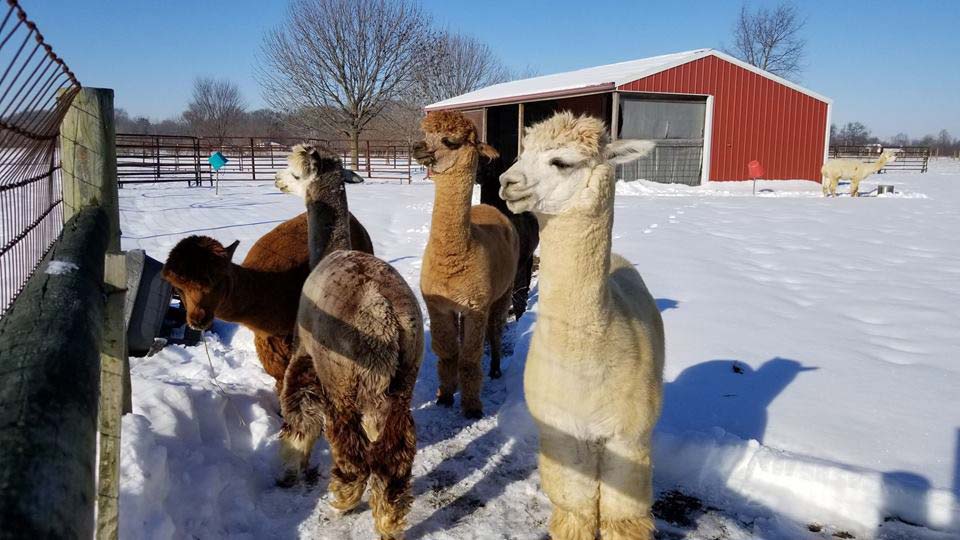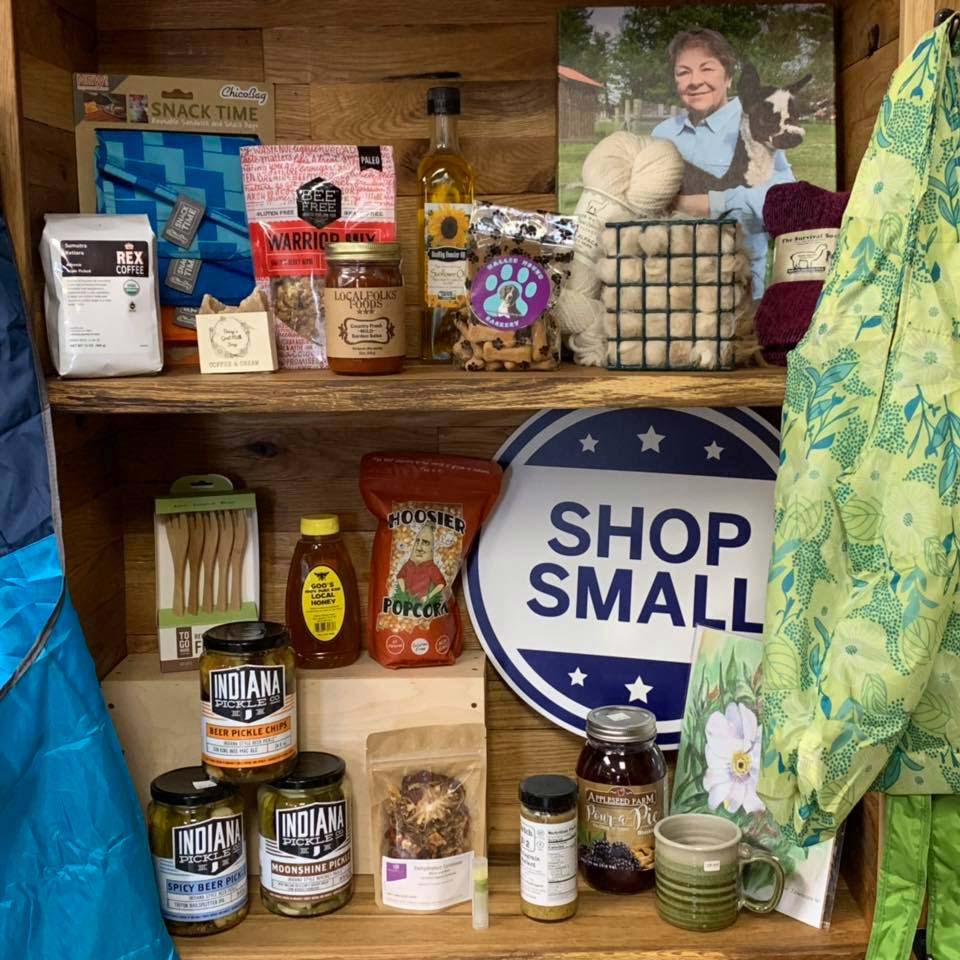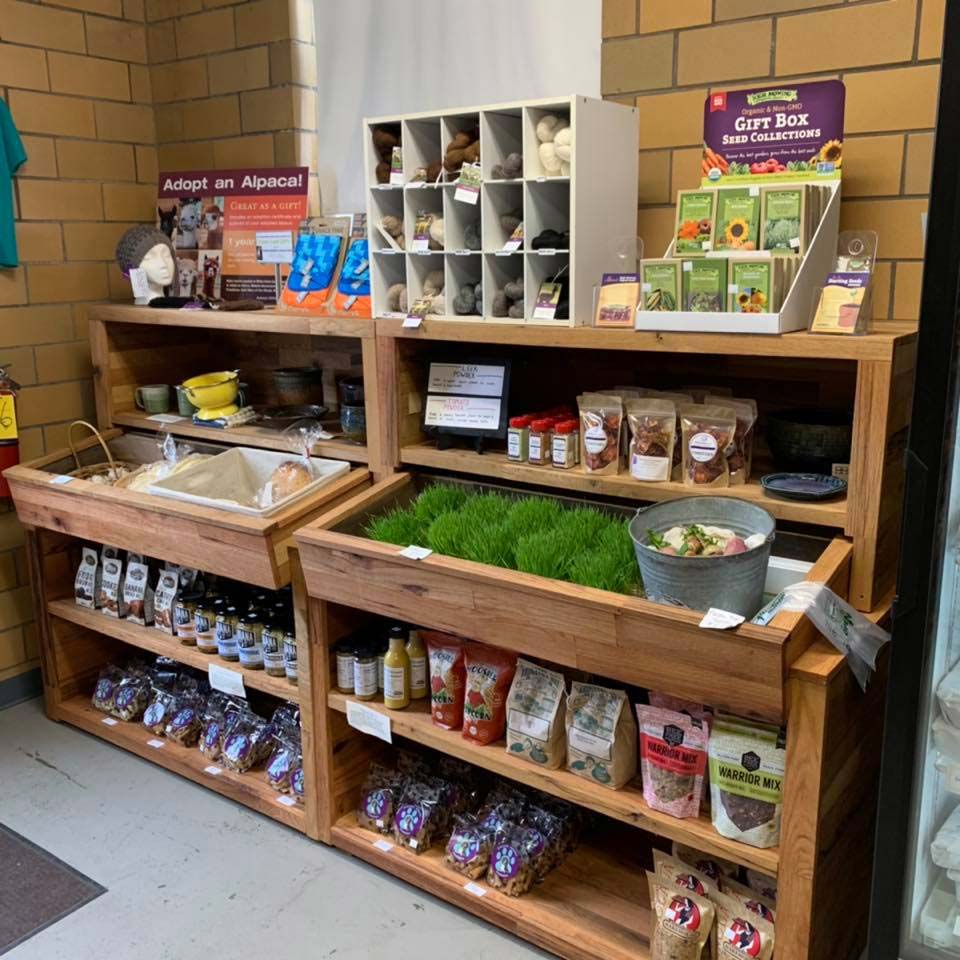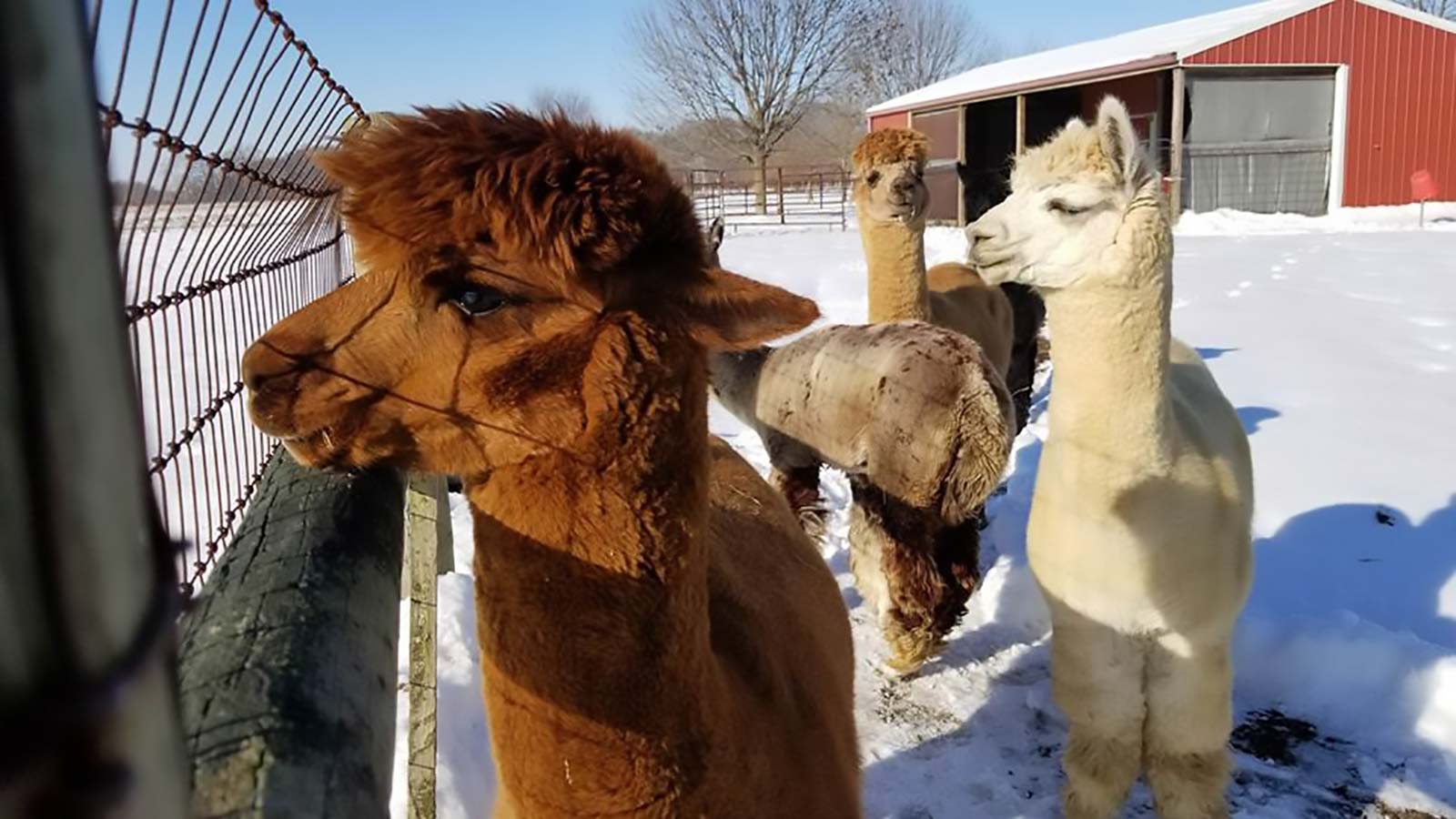Western Indiana’s Agritourism Destination
The White Violet Center for Eco-Justice (WVC) in Saint-Mary-of-the-Woods might run a smaller farming operation, but it does big things for sustainability. Hear from director Lorrie Heber how everything that WVC does—from its organic five-acre garden to its alpaca herd—supports a sustainable land ethic.
A COLLECTIVE MISSION
A ministry of the Sisters of Providence, WVC operates a working farm according to a land ethic that balances the needs of people and land.
“One of the most important things we do is to connect or reconnect people with nature and the natural world so that they can see the interdependence of all creation. When we're successful, we know that that person becomes more mindful of their impact and makes better choices about what and how they consume Earth's precious resources,” says Heber.
In addition to the organic garden, WVC cultivates an orchard, bee hives, flock of laying chickens and a herd of alpacas, and also hosts classes, field trips and educational workshops. The Center extends its sustainable agriculture to members of the community in order to share its products and its mission.
“We model sustainable agricultural methods and, in turn, demonstrate and teach others how to do so as well,” says Heber. “We have five acres of USDA-certified organic specialty crops gardens and orchards that provide wholesome, healthy foods to families in our farm share program, through the local farmers market, in our farm store and through area restaurants and farm-to-institution sales. We pasture-raise laying hens who give us the most delicious eggs you've ever eaten,” she says.

With such heavy fleece, the snow and colder temperatures don’t bother the alpacas.
HOW THE ALPACAS HELP
If the mention of alpacas piqued your interest, you aren’t alone. Sometimes, it’s the alpacas that draw visitors to WVC in the first place.
“The alpacas are a huge agritourism draw for us. So many people visit to see the alpacas and we get the opportunity to talk with them about eco-justice and care for Creation while they're here,” says Heber.
But the herd isn’t just for show. The alpacas live on a working farm, and they actually contribute a lot to its operations.
“Our herd of 35 alpacas play a pivotal role in our mission,” explains Heber. “They give us amazingly luxurious fiber that we have processed into yarn and that we use in other fiber craft. The yarn is either sold by the skein or is entrusted to crafters who knit, crochet or weave handmade scarves, hats, headbands and other products.”
In addition to fiber, the alpacas help create compost used to grow produce in the garden.
“The alpacas help to complete the cycle of life on the farm and contribute to its biodiversity through the gift of their manure. Alpaca poop is gold,” says Heber. “We collect it as well as kitchen scrap from the Sisters of Providence dining service, add it to the horse manure, straw and hay from the St. Mary of the Woods College equine program and make glorious compost that enriches our garden and provides the necessary fertilizer to makes our veggies grow,” says Heber.

The alpacas at WVC enjoy roaming around the farm, even in the snow.
THE WVC FOR ECO-JUSTICE
Visitors can meet alpacas, walk nature trails, explore the farm and even visit the Farm Store for one of the best collections of local goods around. You can even adopt an alpaca and visit him or her at the farm.
“Our farm store started as another channel for us to sell produce and eggs, but we right away saw it as a great way to help grow the local food economy here by giving our fellow farmers market vendors and other local producers a place to sell their wares. Virtually everything in the store is local,” says Heber.

You can shop small at the Farm Store at WVC, which sells locally handcrafted goods from around the area. The store is open on weekends from 10am–3pm and weekdays 11am-–6pm.
No matter when you visit, you’re sure to see something new.
“We have recently certified a commercial kitchen and have dipped our toe into value-added processing our excess and second-quality produce into pickles, ferments, fresh pack jams and purees and dried veggie and herb blends for retail sales,” says Heber.
But here’s one of the best things to know: WVC expects four baby alpacas, called crias, in Spring 2019.
White Violet Center for Eco-Justice (WVC)
1 Sisters of Providence Road
Saint Mary-of-the-Woods, IN 47876

The Farm Store at WVC sells goodies including alpaca fiber yarn and felted crafts, plus popcorn, granola, honey and more.




